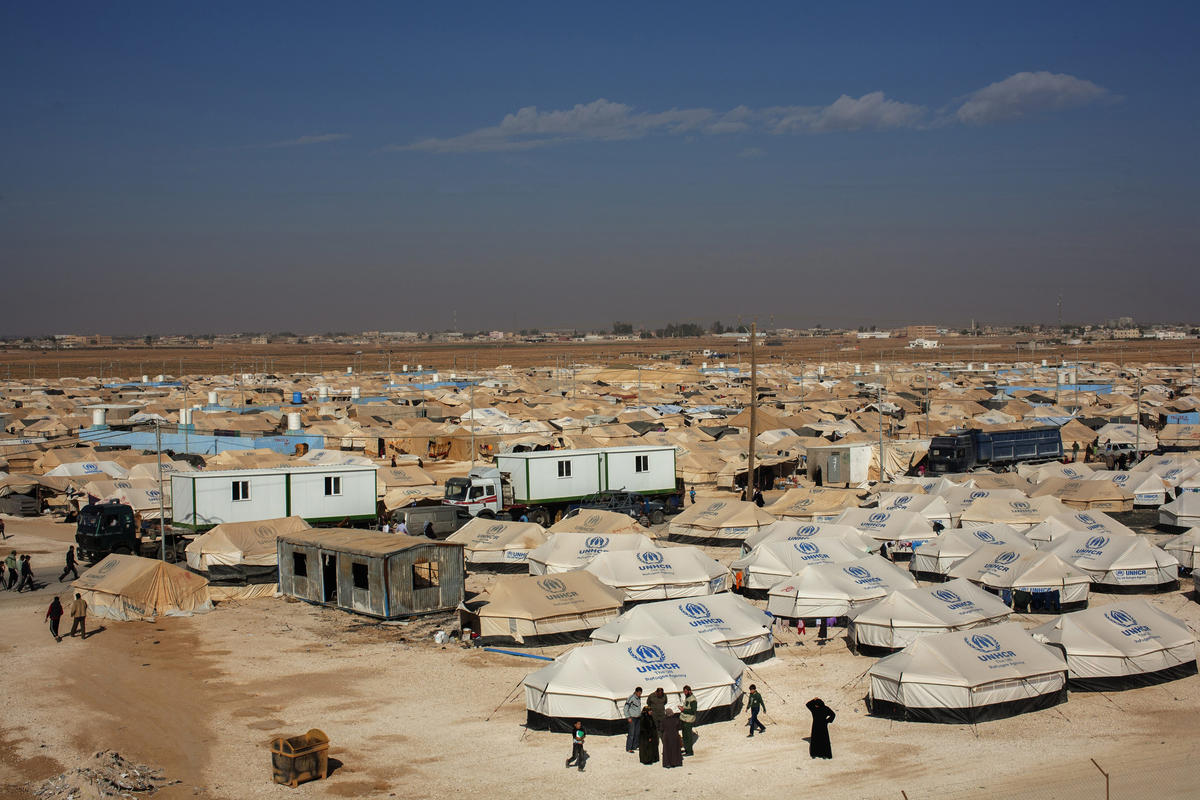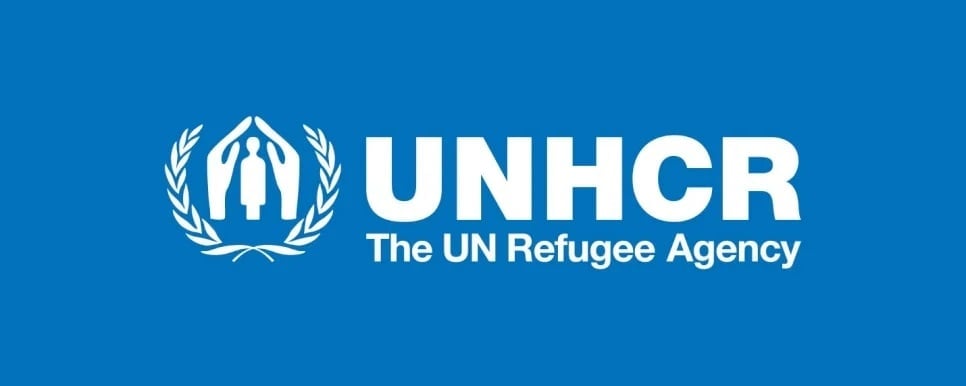Winter conditions bring new hardship for more than 600,000 Syrian refugees
Winter conditions bring new hardship for more than 600,000 Syrian refugees

GENEVA, January 11 (UNHCR) - The UN refugee agency said on Friday that severe winter conditions across Syria and the surrounding region this past week have brought new difficulties for hundreds of thousands of refugees and other forcibly displaced people.
"Even with the winter preparation work that has been done in recent months, many refugees in both camp and non-camp situations are facing particularly cold and damp conditions. At the same time, there has been no let-up in the numbers of people fleeing Syria," UNHCR spokesman Adrian Edwards told journalists in Geneva. He added that as of Thursday, more than 612,000 people had either been registered in neighbouring countries as refugees or were being assisted as such.
The first week of 2013 has seen a surge in new arrivals in Jordan, with an average of more than 1,100 Syrians crossing the border every day, although with reduced numbers over the past few days amid freezing rain. "Many of those arriving have been barefoot, with their clothing soaked and covered in mud and snow," Edwards noted.
Refugees report discarding their belongings to carry their children through flooded countryside to get to Jordan. For people arriving at the border, UNHCR managed yesterday to send 1,000 blankets and 500 mattresses along with emergency clothing. The World Food Programme provided 3,000 welcome meals.
At Za'atri refugee camp, there was flooding earlier in the week amid some of the worst weather in Jordan in 20 years. UNHCR managed on Thursday to deliver several truckloads of gravel to elevate the ground level and improve drain-off. Culverts were cut through the camp ring road at four different points to release standing water into creeks surrounding the camp. This has improved things.
Edwards said health services in Za'atri camp were all operational, with mobile clinics covering the affected area in the camp, detecting medical cases in need of transfers to the camp hospital and treating primary health care patients on the spot.
The spokesman said UNHCR and its partners had relocated affected Syrians to prefab housing during the past three nights and added that the UN Children's Fund (UNICEF) was placing 45 emergency latrines in the new prefab modules. The UN refugee agency is also distributing five blankets per person for new arrivals to Za'atri, in addition to winter clothing. Those whose belongings were damaged in the flooding are receiving blankets, mattresses and other non-food items.
For refugees living away from the camp, conditions have also been difficult. Many are accommodated in shelters with limited heating and insulation from the freezing conditions, along with a shortage of warm clothing and blankets. Some 6,000 families are receiving cash assistance.
The government of Jordan estimates that some 280,000 Syrian refugees have crossed into the country in the past 22 months. More than 176,500 of these are registered with UNHCR or being assisted by the agency.
In Lebanon, the registered and assisted refugee population has grown to almost 200,000 people. Over the past week, temperatures have in general remained above or close to freezing and there has been snow. Flooding has occurred in a number of tented settlements in the Bekaa Valley, in houses in Wadi Khaled in the north, and at a warehouse being used to accommodate refugees further south in Sidon.
"A collective effort in Sidon by UNHCR, the Danish Refugee Council, the Norwegian Refugee Council, and Caritas Lebanon Migrant Centre has allowed for draining of the warehouse. In Bekaa and in the Wadi Khaled we have taken action to deal with the flooding and help affected refugees in partnership - variously - with Action Contre La Faim, and Premiere Urgence," Edwards said.
"We're also gearing up provision of assistance with local municipalities and NGOs. Dry mattresses, bed covers and food vouchers have been handed out; four Syrian and two Lebanese families have been moved away from a flooded part of Wadi Khaled; and we are making additional room available to house people in collective shelters," he added.
UNHCR has also increased distribution of warm blankets, heaters, fuel vouchers, winter clothing and plastic sheeting. Some 6,700 families have had their homes weather-proofed, and renovation help has been provided to 5,300 others.
In Turkey, the authorities have carried out significant work in reinforcing camps against the winter conditions, including creating platforms for tents, providing heaters, tarpaulins, plastic sheeting, warm clothing and additional high thermal blankets. To support this, UNHCR has provided family tents for 83,500 people, blankets for 107,220 and kitchen sets for 110,220.
And the winter weather has affected northern Iraq, with heavy snow making life difficult for refugees in Domiz camp and those staying with local communities. These people are also facing high prices for basic commodities. "While substantial winterization work has already been done, UNHCR is monitoring the situation closely. Currently, we have urgent needs for additional winter clothing, boots, and scarves, particularly for children," UNHCR's Edwards said.
Inside Syria, UNHCR has in recent months provided significant winterization aid to refugees and displaced families, including winter quilts, heavier blankets and warm clothing. Shelter assistance work started in late 2012 and programmes of cash assistance have been under way. As of year's end UNHCR had helped more than 400,000 people in accessible areas of Syria, providing non-food aid, and in addition cash aid to nearly 15,000 families.
"Despite the difficult security conditions, we are continuing to work to help people where we can - often working through partner organizations. However, difficulties of access mean we cannot reach all people in need," Edwards said.









